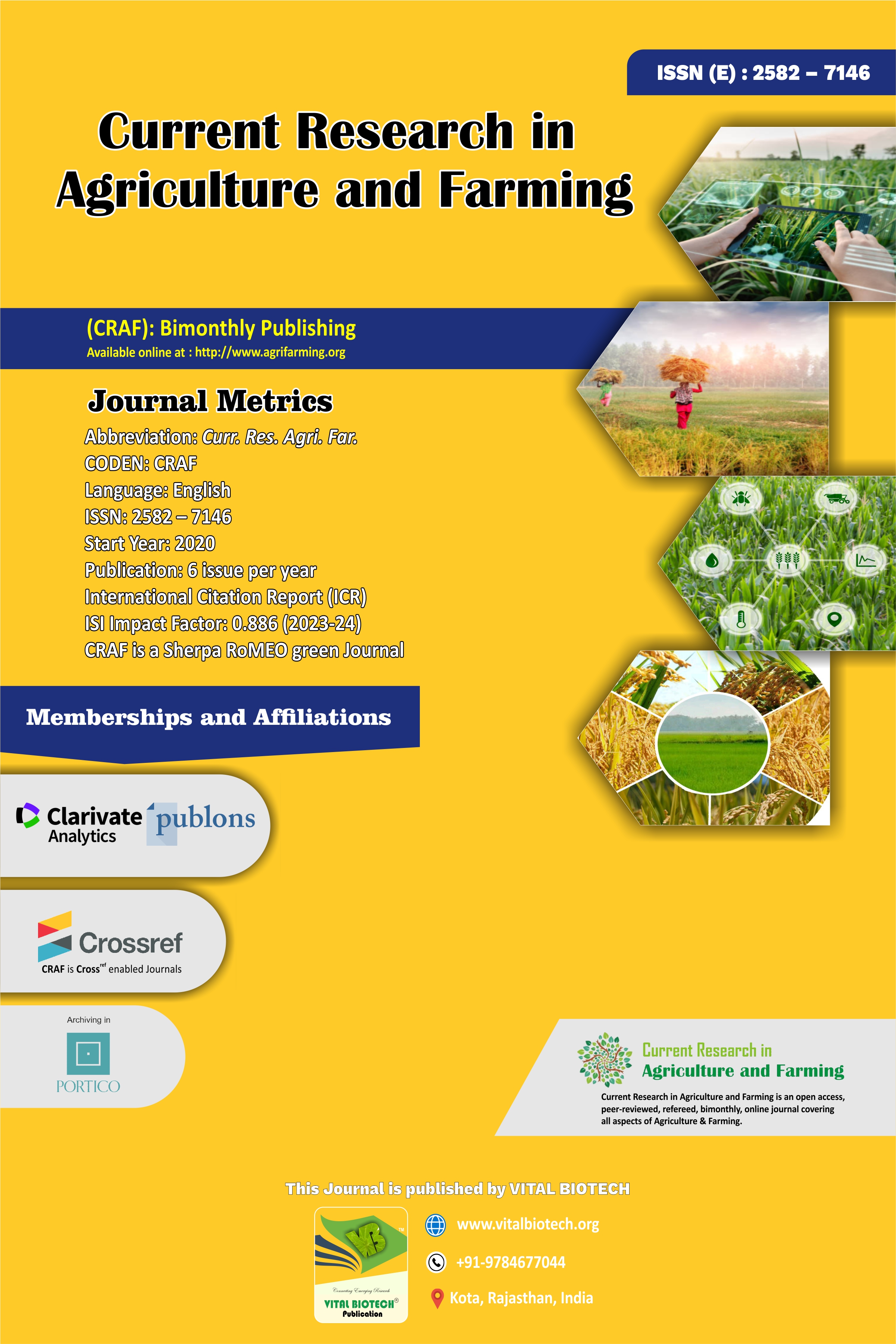

Current Research in Agriculture and Farming (CRAF)
Year : 2024, Volume : 5, Issue : 4
First page : (1) Last page : (15)
Article doi: : http://dx.doi.org/10.18782/2582-7146.215
Aakriti Singh Sisodiya1* and Soumitra Tiwari2
1Guest Faculty, 2Asst, Prof., Department of Food Processing and Technology,
Atal Bihari Vajpayee Vishwavidyalaya Bilaspur, Chhattisgarh, India
*Corresponding Author E-mail: aakriti.singh.sisodiya9@gmail.com
Received: 11.05.2024 | Revised: 23.07.2024 | Accepted: 6.08.2024
ABSTRACT
Biotechnology has emerged as a transformative force in agriculture, offering unprecedented benefits to enhance crop production and quality. This interdisciplinary field integrates biology, genetics, and technology to manipulate living organisms at the molecular and cellular levels, paving the way for innovative solutions to address global food security challenges. One of the key contributions of biotechnology to agriculture is the development of genetically modified (GM) crops with enhanced traits such as resistance to pests, diseases, and adverse environmental conditions. These traits not only bolster crop yields but also reduce the reliance on chemical pesticides and fertilizers, promoting sustainable and environmentally friendly farming practices (Qaim & Kouser, 2013).
Precision breeding techniques, including CRISPR-Cas9, have revolutionized the genetic modification process, enabling scientists to precisely edit specific genes without introducing foreign DNA. This approach holds immense promise for tailoring crops with desired traits, ranging from improved nutritional content to enhanced resistance against emerging pathogens. Additionally, biotechnology plays a pivotal role in the development of biofortified crops, addressing malnutrition by increasing the nutritional value of staple foods. Golden Rice, fortified with beta-carotene, stands as a notable example, offering a solution to vitamin A deficiency in developing countries (Paine et al., 2005).
Furthermore, biotechnology contributes to the development of sustainable agricultural practices through the production of biofuels and bio-based materials. Engineered microbes and plants are harnessed to generate biofuels, reducing reliance on non-renewable energy sources and mitigating environmental impact (Himmel et al., 2007). The integration of biotechnology in agriculture not only fosters increased productivity but also plays a crucial role in addressing broader societal challenges, such as climate change and resource depletion.
Keywords: -Biotech-Enhanced Agriculture, Genetic Modification in Agriculture, Crop Quality Enhancement.
Full Text : PDF; Journal doi : http://dx.doi.org/10.18782
Cite this article: Sisodiya, A. S., & Tiwari, S. (2024). Biotechnology's Benefits to Agriculture: Increasing Crop Production and Quality, Curr. Rese. Agri. Far. 5(4), 1-15. doi: http://dx.doi.org/10.18782/2582-7146.215

